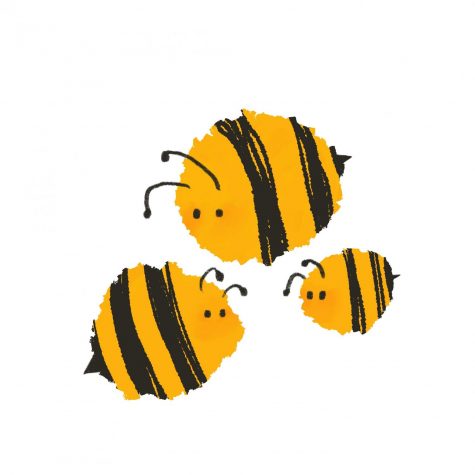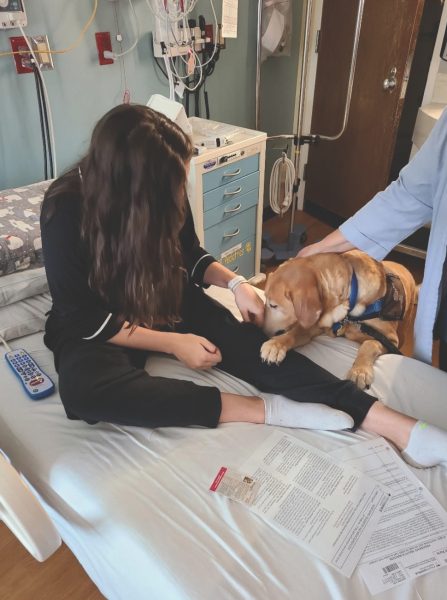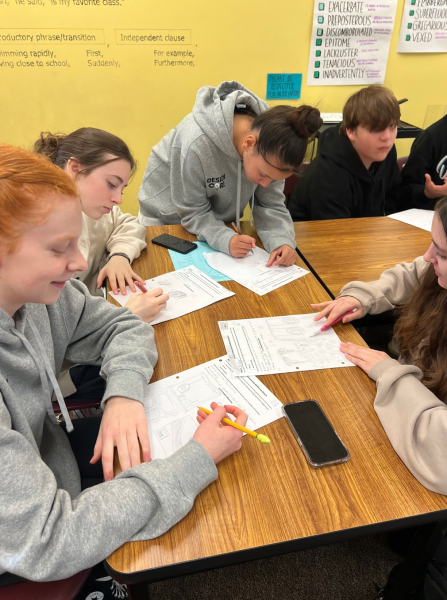City Councilor Brooks discusses Tualatin’s “Bee City” designation
April 12, 2021

As Earth Day approaches once again, it is important that we consider ways in which our city can change the environment for the better and recognize how it already has. One could even say that Tualatin is setting an example for other cities along the way. Bridget Brooks is a good example of an environmental role model within our own community.
Brooks was elected to Tualatin City Council in November of 2018 and has since taken steps to improve and sustain our community’s health. She created the Tualatin Sustainability Network (TuSN) and led the charge to designate the city a “Bee City.”
As a Bee City, Tualatin now serves as a location in which pollinators such as native bees, birds and butterflies are provided with healthy, sustainable habitats in order to support our environment long-term.
When Brooks first proposed that Tualatin become a Bee City, she approached the issue from the perspective of a clinical social worker.
“My original concern was the impact of the herbicide glyphosate, found in RoundUp, on the brain health of our residents and workers. I am very concerned about both impacts on brain development in children and health impacts on workers who play and work at our parks and roadsides,” Brooks explained. “There are also links to many types of cancer in people and even dogs who live near yards where RoundUp is utilized. Non-Hodgkin’s Lymphoma is the type of cancer in which several lawsuits and settlements have been reached, including a controversial class action lawsuit of over $10 billion, with a B.”
Throughout her research into the harmful effects of certain herbicides, however, Brooks realized the negative impact our weeding habits had on the global environment.
“Then of course there are the bees, whose populations have been diminishing at an alarming rate. I knew from the beginning of thinking through my Bee City proposal that we needed to be more attentive to our pollinators or we would lose them. This would impact the web of fauna and flora, including people, and the plants and animals we depend on, in a disastrous way,” Brooks said.
Although there were originally concerns around the program’s cost, the management of the volunteer board, the accommodation of changes in work practices and the residents’ acceptance of living with “weeds,” Parks Director Ross Hoover managed to present solutions that the City Council approved unanimously.
“In Oregon we have more types of bees than in all the states east of the Mississippi combined,” Brooks said. “We plant pollinator-friendly areas, and educate the community about what we are doing” to keep these helpful insects healthy.
Although Tualatin has already been designated as a Bee City, there is more that we all can do to provide a sustainable habitat for our pollinators.
“Habitat loss is a huge problem for bees. Planting native plants that support our bees and other pollinators is a first step. Next, be mindful about gardening practices that are toxic to bees, such as thinking about herbicide and pesticide use, refraining from using harmful chemicals and considering other types of pest and weed control.”
Even easier than discovering different, safer ways to remove “weeds” from the lawn, consider which of these plants are actually benefiting our pollinators.
“Think about ‘weeds’ differently and know what’s invasive and what might be food for pollinators. There is a new movement to let dandelions bloom, and if you don’t want them, pull them before they seed,” Brooks stated. “Finally, sources of water are important for bees. There are small ‘bird baths’ that are actually designed for bees and other pollinators to get a drink.”
All of these gardening options not only promote a healthier environment for our native pollinators, but they also provide beautiful yards for us all to enjoy.
“My hope is that our city’s example of good stewardship will lead to improved practices among our residential and business communities as well,” Brooks concluded.
If you would like to volunteer with TuSN, check here for events and volunteer opportunities.





